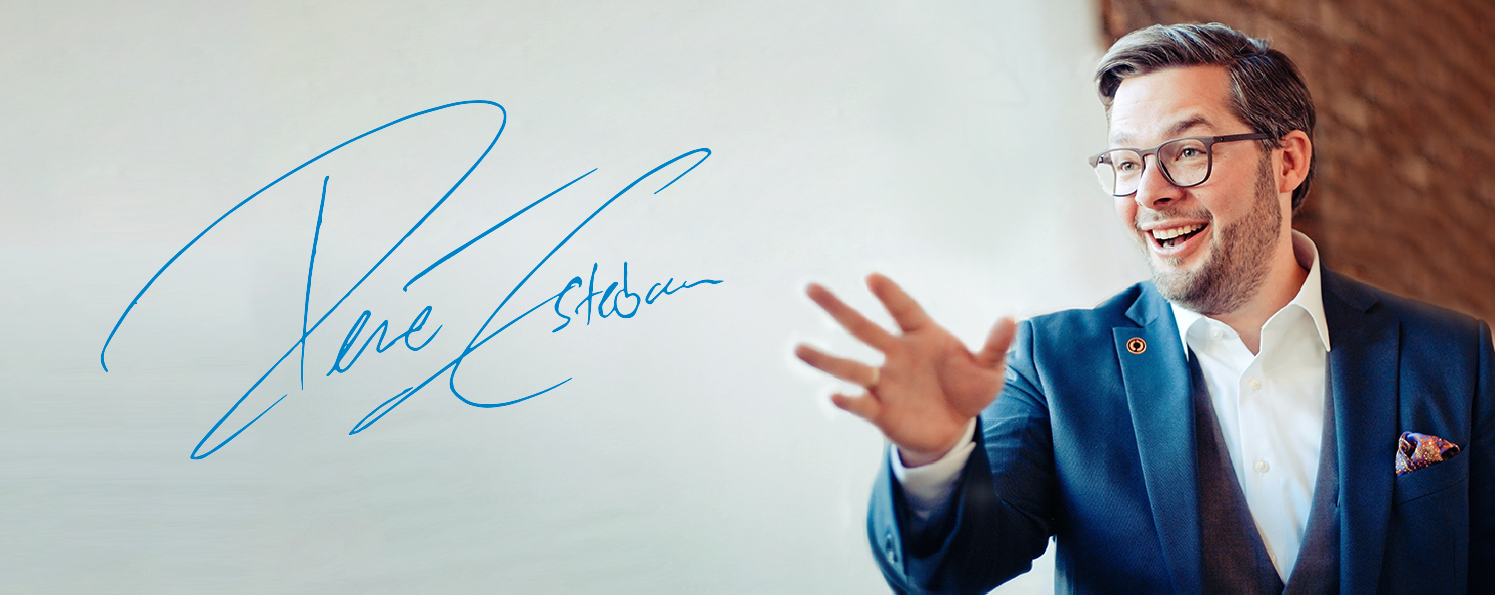
Every organisation has to adapt and change over time to remain competitive. However, this constant change brings with it a number of challenges: How can top management establish a vision for the company’s future and implement it? How to effectively engage employees in this change process? And how can top management drive change without destabilising the company?
The Role of top management in corporate change
I have spent 20 years exploring the key traits that contribute to the success of a leader, with the ultimate goal of making a positive impact. Especially in top management, the impact of business change is enormous.
A top manager usually has three central tasks:
- The leader establishes a picture of the future: Successful leaders can clearly articulate where the company should be in five or ten years. They have a clear picture of the future products, the customers and the employees.
- The manager reviews the current state of the company: This involves assessing the strengths and weaknesses of the company in the context of the future picture.
- The leader develops a transformation strategy: Ultimately, it is the leader’s task to develop a plan for how the company can move from its current state to the desired image of the future.
These three elements are not always equally pronounced, but in truly successful leaders who have a major impact on the success of a company, all three areas are well developed.
Leadership styles in corporate change
The above tasks are more conceptual, but what about managerial behaviour? Inspired by the corporate psychologist and entrepreneur Andreas Sourisseaux (who helps to identify the right top leaders for the right positions), there are two basic modes of behaviour in top managers: the integrative mode and the aggressive mode.
- In the integrative mode, the leader brings people along, motivating and inspiring them. This mode is primarily focused on the people in the company.
- In aggressive mode, the leader drives change and sets clear goals. This mode is more focused on the results of the company.
However, the most effective type of leadership is a mixture of both modes. The leader should be able to scan the business environment and adapt these two modes of behaviour according to the situation. For example, the integrative mode can temper the aggressive mode and vice versa.
Personal competencies for a successful transformation
In addition to leadership skills and behavioural modes, there are other factors that are crucial for successful organisational change. These include problem-solving skills and self-efficacy. A leader should be able to solve problems effectively and see him/herself as the cause of successes and failures.
Another important aspect is emotional intelligence. A leader should not only understand and be able to respond to the rational but also the emotional needs of their employees. This is especially important in times of change when uncertainty and fear of the unknown are often high.
Summary
The role of top management in corporate change is enormous. With a clear vision, a thorough analysis of the current state of the company and an effective transformation strategy, top management can pave the way to the future. A balanced leadership style and personal competencies such as problem-solving skills, self-efficacy and emotional intelligence are critical to the success of these efforts. It is about providing both the inspiration and the focus to achieve goals. Because without inspiration, there is no energy for change, and without focus, we get lost in too many options.
Let us shape the future of your company together
If you are facing similar challenges, please feel free to contact me. As founder and CEO of FocusFirst, I have made it my mission to support senior leaders in their transformation and strategic change projects.
FocusFirst is a specialised boutique consultancy focusing on business transformation, organisational development and strategic change projects. We strongly believe that successful transformation depends on a clear vision, an effective leadership style and a committed team.
We are ready to support you in realising your vision, challenging the status quo and developing an effective transformation process for change. With our expertise, we can help you master the challenges of change and successfully lead your company into the future.
All our Senior Advisors were former executives. So it’s not just about theoretical knowledge, but real experience.
Don’t hesitate to contact me directly if you would like to learn more about how FocusFirst can support you in your transformation. I look forward to talking to you about your vision and the future of your business.
Your René Esteban
Founder, CEO of FocusFirst



